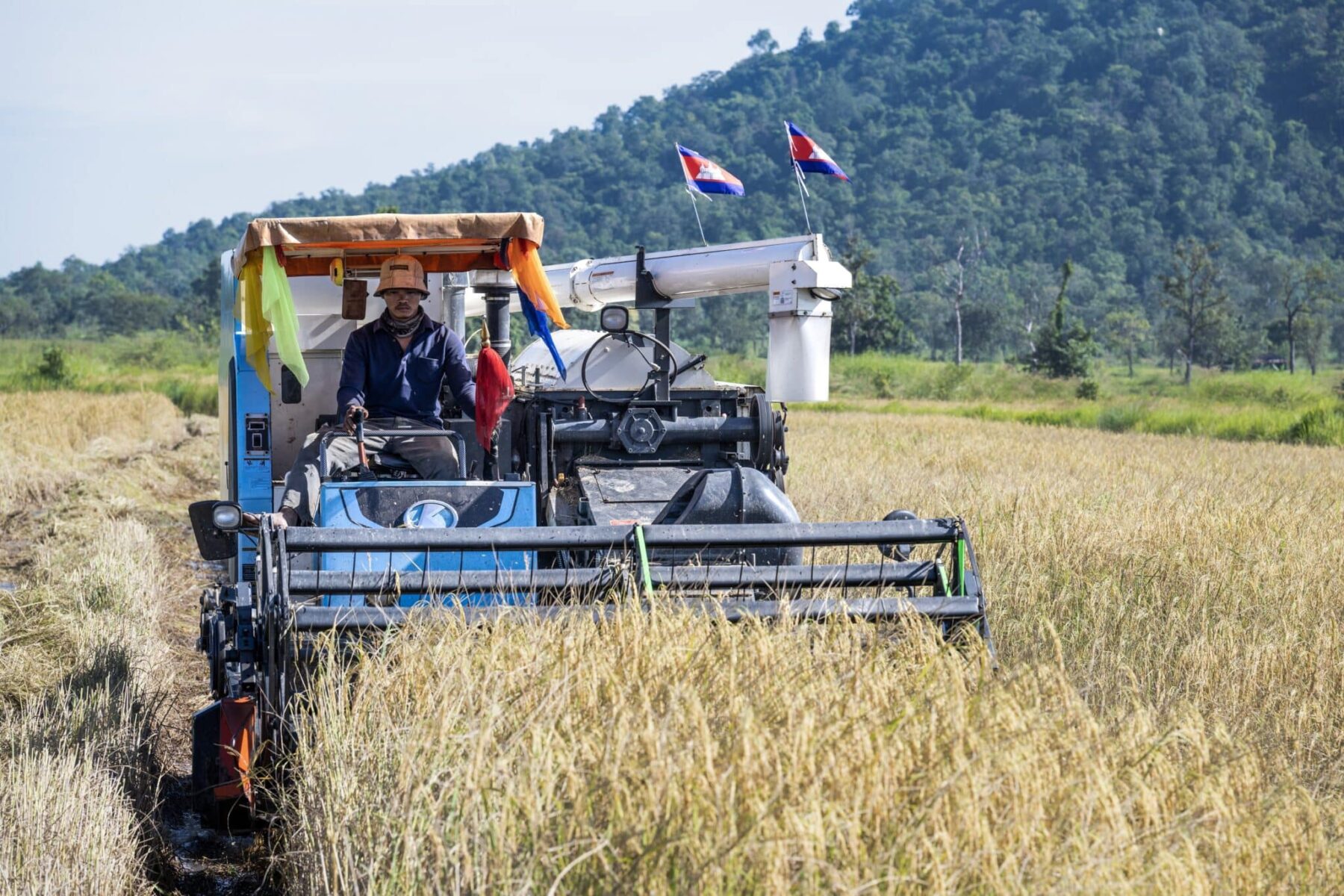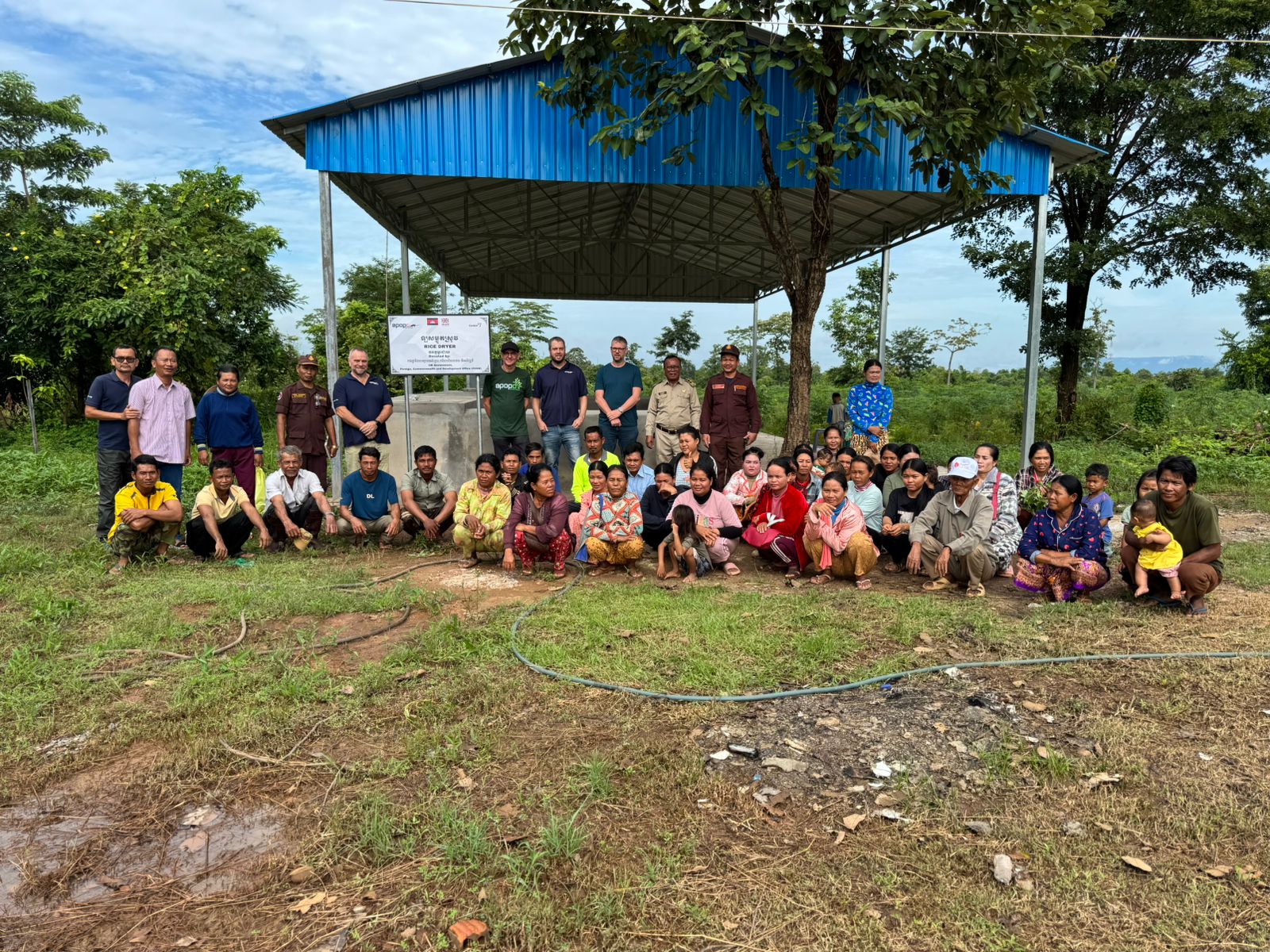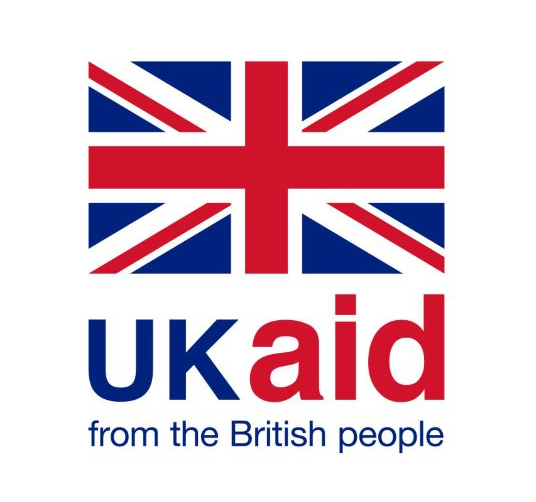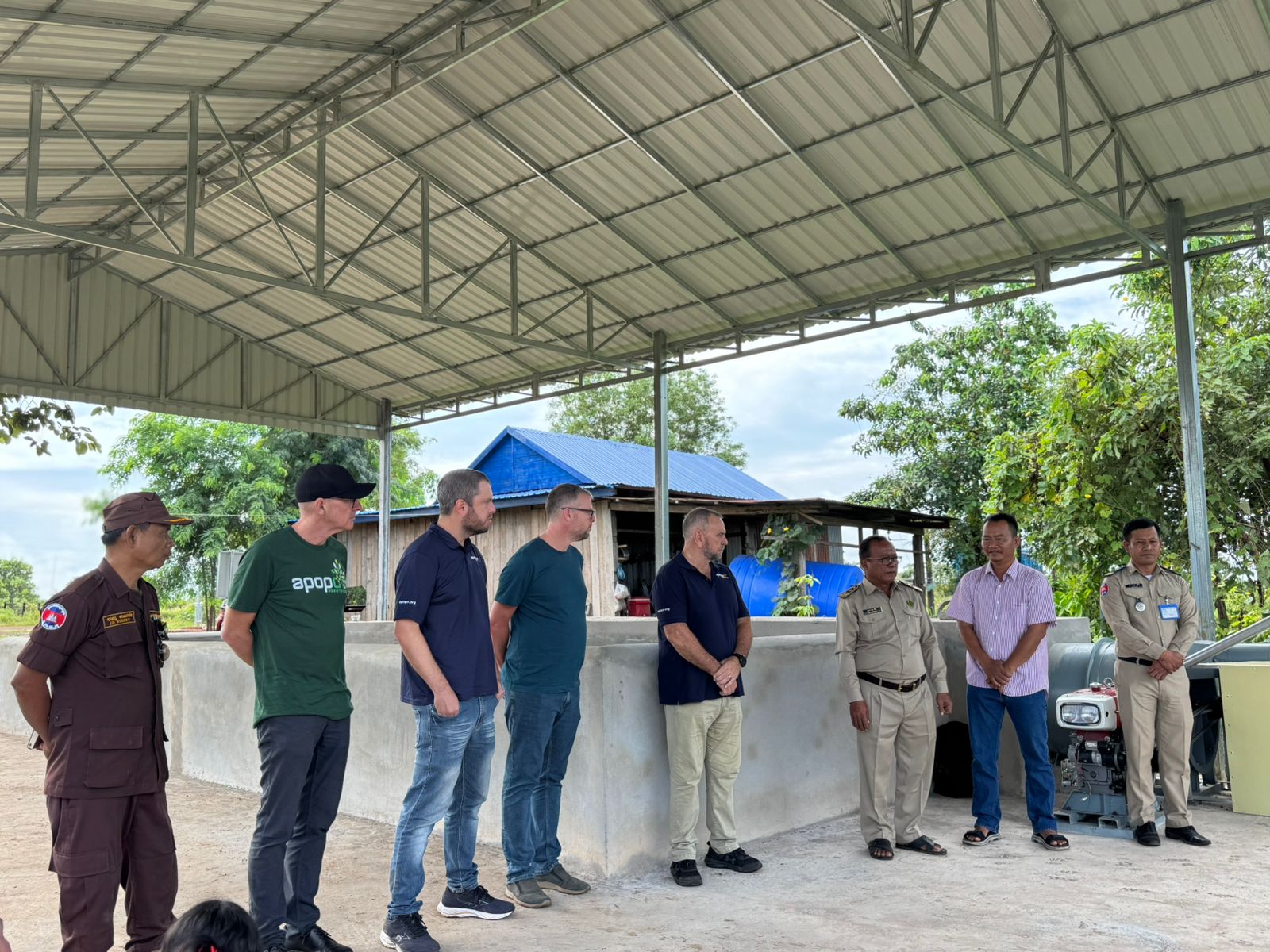APOPO recently completed the construction of a rice dryer in Kantout, Cambodia, as part of its ongoing efforts to support local farmers. The rice dryer, funded through the Minefields to Rice Fields project, will allow farmers to dry and store their harvested rice more efficiently, helping them sell it at better prices and improve their livelihoods.
Helping Farmers with Better Post-Harvest Equipment
Before the construction of the rice dryer, farmers in Kantout relied on traditional methods of drying their rice, such as spreading it out in the sun. While these methods work, they are time-consuming, labor-intensive, and prone to losses from weather conditions or pests. The new rice dryer helps farmers to:
- Preserve the quality of their rice by drying it more consistently.
- Reduce post-harvest losses due to spoilage or damage.
- Store rice longer to wait for more favorable market conditions, securing better prices for their product.

Part of the Minefields to Rice Fields Project
The construction of the rice dryer is part of the larger Minefields to Rice Fields project, which focuses on clearing minefields in Cambodia and converting them into productive agricultural land. With support from the UK’s Foreign, Commonwealth & Development Office (FCDO), APOPO is clearing over 3.8 million square meters of land contaminated by landmines, making it safe for agriculture and helping farmers expand their rice farming operations.
Increasing Farmers’ Agricultural Income
In partnership with Cordaid, APOPO is working to increase farmers’ agricultural income by 30%. The rice dryer plays a key role by improving post-harvest management and allowing farmers to store their crops and sell them when market prices are higher.
By having better control over when they sell their rice, farmers can avoid selling immediately after harvest when prices tend to be lower, which helps them increase their income and improve financial stability.
Training and Coaching to Ensure Effective Use
To ensure the rice dryer is used effectively, APOPO and Cordaid are providing training and coaching to local farmers. This training covers how to operate the rice dryer and best practices for post-harvest management. By equipping farmers with the necessary skills, APOPO is ensuring that the dryer benefits the community in the long term.
Impact on the Local Community
The rice dryer in Kantout is expected to improve post-harvest processing and local economic development. Its introduction will not only boost farmers’ incomes but also improve food security and contribute to a more resilient local economy. This development aligns with the broader goals of the Minefields to Rice Fields project, which seeks to transform previously unsafe land into valuable agricultural resources.
APOPO’s work in Cambodia is not just about clearing landmines but also about creating sustainable futures for communities affected by conflict. The rice dryer is a practical solution that helps improve livelihoods and supports long-term agricultural development.



